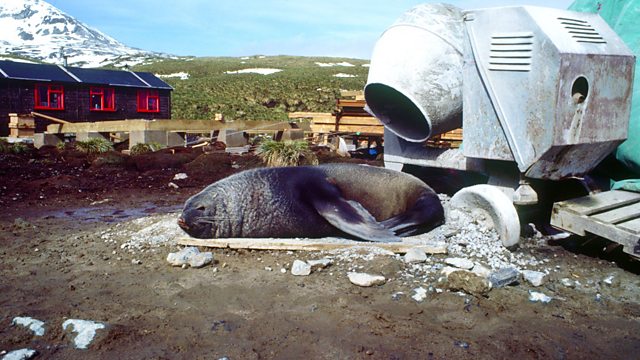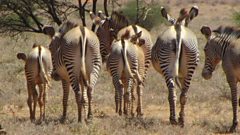Global Collapse
Featuring a report from Northern Kenya on the decline of the Grevy zebra, and Monty Don explores the link between the general loss of wildlife abundance and human activity.
Monty Don presents Shared Planet, the series explores the crunch point between human population and the natural world. In this weeks programme we have a report from Northern Kenya about the Grevy's Zebra, the worlds most stripy Zebra and a species in decline for many different reasons, all of which appear to be attributed with human activity. Monty Don examines the wider issues of species abundance and people and interviews one of the authors of a recent paper " Can a Collapse of Civilisation be Avoided" published by The Proceedings of The Royal Society with one of its authors Professor Paul Ehrlich from Stanford University. Also in the programme Dr Joe Smith from The Open University, an expert in environment and the media, exploring how the media should keep up with such apocalyptic headlines.
Last on
Professor Paul R. Ehrlich

Dr Joe Smith

Dr Joe Smith is Senior Lecturer of Environment at the Open University and has a PhD in Geography from Cambridge University. He is a Fellow of the Institute of British Geographers and teaches environmental communication, policy and politics at both undergraduate and Masters level. Dr Smith’s research seeks to promote better understanding of - and action on- global environmental change issues. His research includes work on: public engagement and the media, the politics of consumption and contemporary environmental history.
Grevy's Zebra

The (Equus grevyi) is the largest species of zebra, with stripes much narrower than that of the plains zebra. Grevy’s were previously found in multiple countries across Africa but they are now restricted to only a small population in Ethiopia and a larger one in Kenya. They are classified as endangered on the IUCN Red List, with the population seeing a decline of 85% in the last 50 years. This decline is due to a range of issues including habitat loss from expanding villages and overgrazing, as well as frequent droughts and poaching.
Broadcasts
- Tue 25 Jun 2013 11:00�鶹�� Radio 4
- Mon 1 Jul 2013 21:00�鶹�� Radio 4
Learn about habitats with The Open University
Explore the twists and connections of natural life in four different UK habitats.


